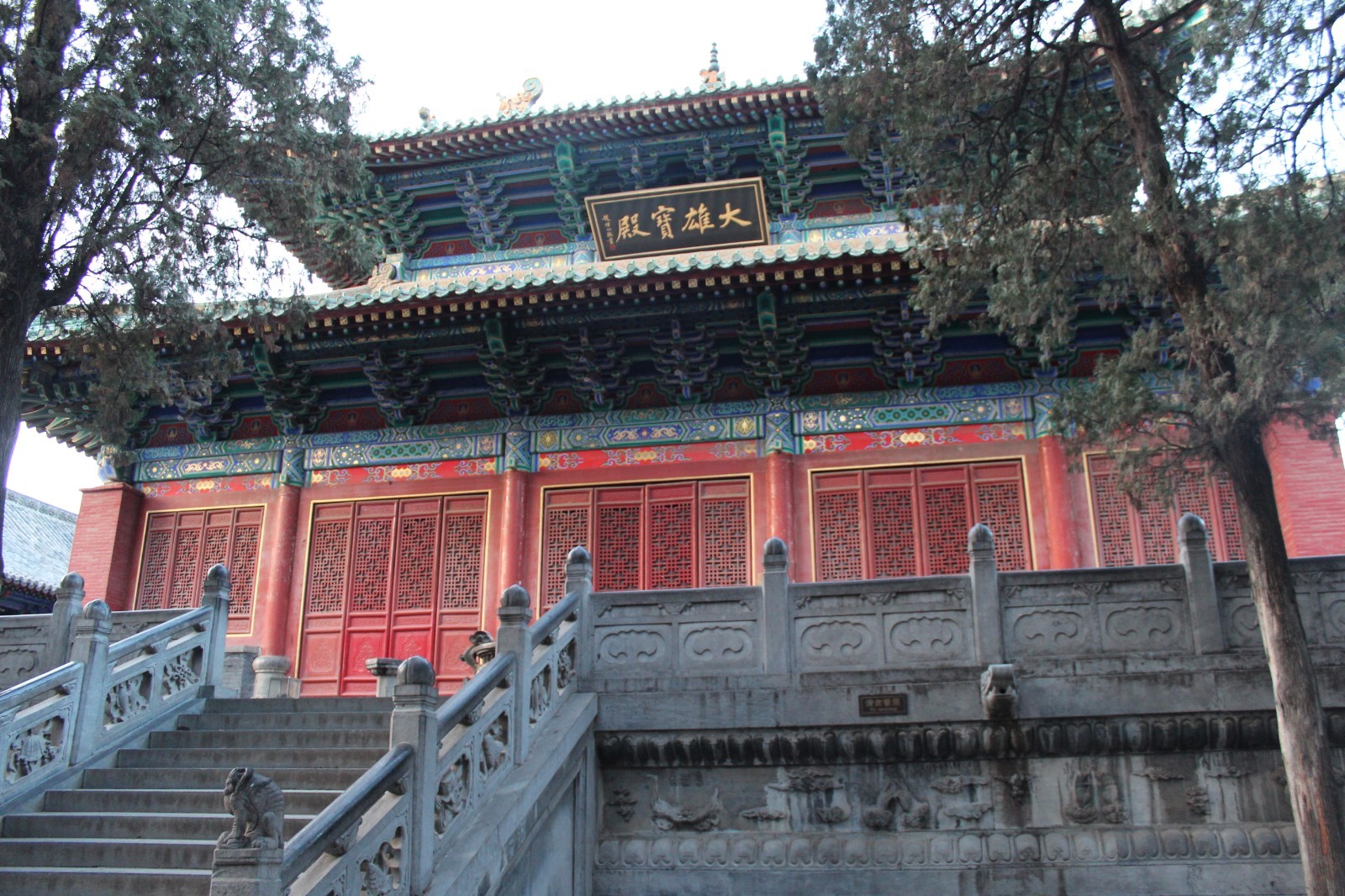Mahaviro Hall
Mahaviro Hall was also in the ancient times called as Three-century Buddha Hall” “Glazed Hall”, but commonly called as grand hall, main hall and treasure hall. It is situated in the center of the temple and is the center for all the Buddhist services of the temple. According to records about “Mountainous Hall” and “Beautiful House and Fragrant Pavilions” of Shaolin Temple Stella, as early as in about the Tang Dynasty, the palace-type Permanent Residence Compound was built at the current site, from when the temple started to have main hall and all types of pavilions. In the dynasties of Jin, Yuan, Ming and Qing, renovation has been made on the Mahaviro Hall. It was destroyed in the war of 1928. It was redesigned and rebuilt in 1984 and completed in 1986. The new Mahaviro Hall is located at the original site, with the original columns, walls, Buddha platforms, front and rear doors and stands designed and built as per original location and size.

Grand Hall is five-room wide and four-room deep, with the structure, styles and carvings all resumed original. The horizontal board of “Mahaviro Hall” was inscribed by Zhao Puchu. The hall is for enshrinement and worship of the three Buddha, with Sakyamuni placed in the center and accompanied by the two Buddha of Wenshu and Puxian to form the “Huayan’ s Three Saints”. On the left side is the Yaoshi Buddha accompanied by the two Buddhas of Sunlight and Moonlight. On the right side is Amitabha, accompanied by the two Buddhas of Avalokitesvar and Dashizhi to form the Western Three Saints. On both sides are the newly-sculptured statures of Damo and Kimnara to show the outstanding cultural features of Shaolin Temple and to deffer from other temples. On the god platforms at the eastern and western walls are placed the statures of 18 arhats with vivid and various styles and motions to show different characters. The stone columns at the hall front and edge are basically original. The dragon and the tiger statues replacing the twin drum-like statues are the important stone sculpture of the temple.
